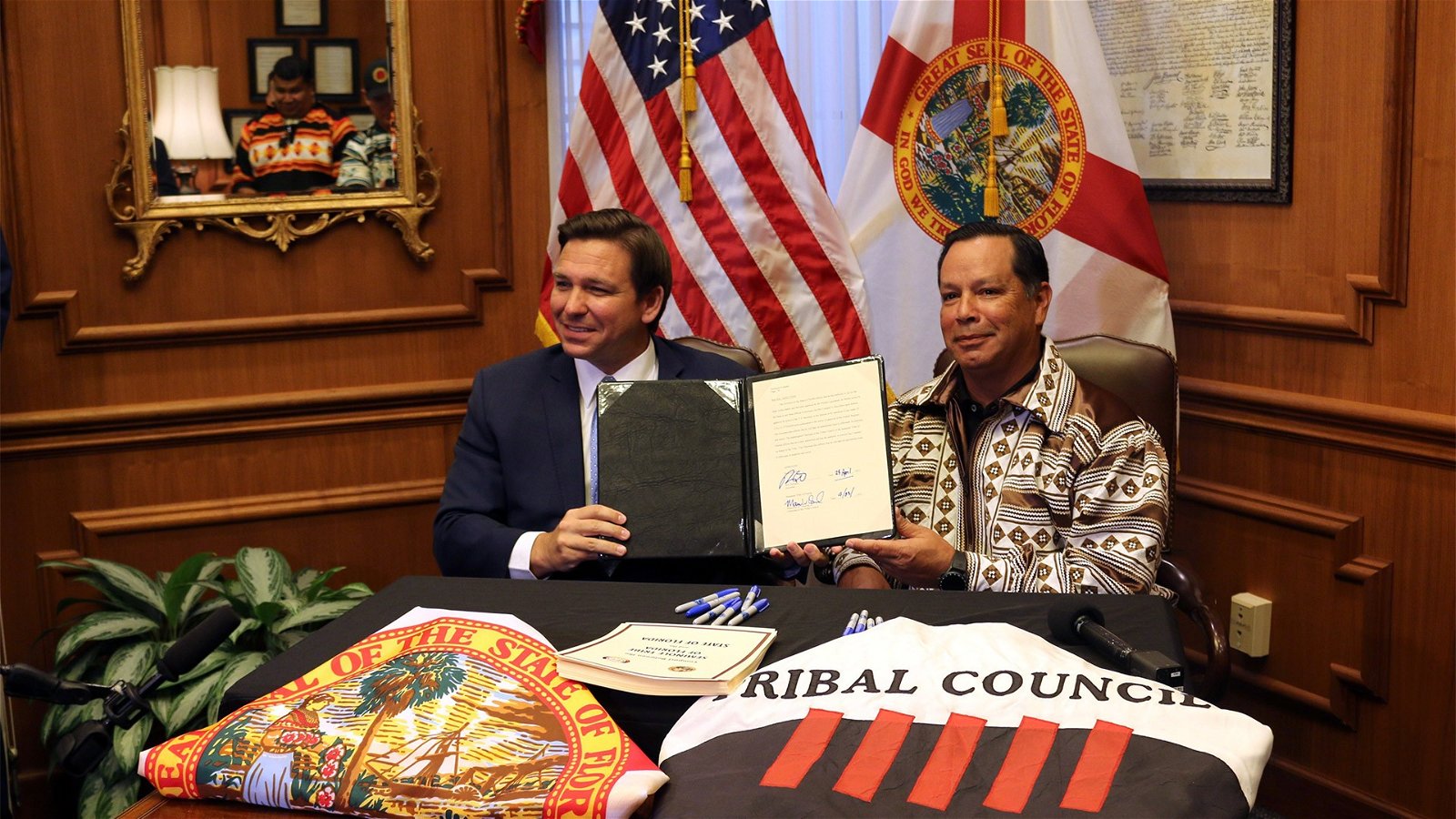The Joe Biden administration is urging an appeals court to reinstate a deal that gave the Seminole Tribe control of sports betting throughout Florida. The move comes some nine months after U.S. District Judge Dabney Friedrich struck down the expanded gaming compact with the Seminoles on November 22, thus halting sports betting in the Sunshine State.
A U.S. Department of the Interior brief filed Wednesday offered a defense of the Biden administration’s decision to allow the gambling agreement to go into effect. The 30-year gaming compact between the state and the tribe was signed in April last year by Gov. Ron DeSantis. It called for the Seminoles to pay the state at least $2.5 billion over the first five years in exchange for sole control over sports wagering in Florida, plus the option to add roulette and craps to its operations.
Friedrich’s November ruling followed a lawsuit filed by West Flagler Associates, owner of the Magic City Casino, and Bonita-Fort Myers, owner of the Bonita Springs Poker Room, alleging that the sports betting plan violated laws and would cause a “significant and potentially devastating” impact on their businesses.
Florida Gov. Ron DeSantis and Seminole tribe Chair Marcellus William Osceola Jr
Under the Florida-Seminoles agreement, bettors were allowed to place wagers through mobile devices anywhere within the state, as long as these were processed through computer servers on tribal property, which the compact claimed constituted betting on tribal land. However, Friedrich described this model of sports betting as “fiction,” and discarded the deal, stating that the compact violated the federal Indian Gaming Regulatory Act, which mandates state-sanctioned gambling to occur on tribal land.
Moreover, Friedrich invalidated other pacts of the compact, finding that Interior Secretary Deb Haaland erred when she allowed the deal to go into effect last summer. However, in the latest brief, lawyers for Haaland argued that Friedrich was wrong because the compact only authorized gambling on tribal lands, and that the secretary was obligated to allow it to go into effect.
US President Joe Biden
“The secretary has no duty — nor even any authority — to disapprove a compact that validly authorizes gaming on Indian lands simply because the compact also contemplates that the state will enact legislation permitting persons outside Indian lands to participate in that gaming,” lawyers for the U.S. Department of Justice, which represents Haaland and her agency, wrote in a 75-page brief, as reported by the Miami Herald.
In a brief filed last year defending Haaland’s decision to allow the compact to go into effect, Justice Department lawyers argued that “provisions in the compact reflect a permissible hybrid approach wherein gaming activity that occurs off of the tribe’s Indian lands is authorized under state law, and gaming activity that occurs on Indian lands is authorized by IGRA pursuant to the compact,” the cited source further detailed.
U.S. District Judge Dabney Friedrich
However, on Wednesday’s brief, the Biden administration changed its approach, stating that Haaland’s scrutiny of the compact was restricted to activities authorized to take place on the Seminoles’ lands.
“The legality of any non-Indian land activities discussed in a compact is instead a matter of state law: If the courts ultimately decide that those activities are not authorized by state law, then those activities will not be permitted, regardless of what the compact contemplates,” Wednesday’s brief said.
Daniel Wallach, an attorney who specializes in gambling and other regulatory issues, told The News Service of Florida on Thursday that the federal government is advancing “specious” arguments that “falsely characterize” the record in the case. Wallach said the compact “expressly authorized” online sports betting throughout the state and contended that the Biden administration has “undergone a metamorphosis” in arriving at its latest arguments.
“They’re making factual assertions about the compact that are belied by the plain language of the compact. It’s crystal clear that the compact authorizes online sports betting, and that activity is what constitutes a violation of IGRA,” he said.
In a separate brief filed late Wednesday, attorneys for the Seminoles argued that Friedrich erred by not allowing the tribe to intervene in the parimutuels’ legal challenge. The tribe, which sought to have the lawsuit dismissed, has cited a right to sovereign immunity that helps shield it from lawsuits.
The tribe “has a broad and particular interest in maintaining the 2021 compact, which is critical to the resolution of continuing discord between the tribe and pari-mutuel facilities, and to healing the long-standing rift between the tribe and the state,” the Seminoles’ attorneys wrote, as reported by The Miami Herald.
Supporters contended the sports betting arrangement with the Seminoles would comply with a 2018 constitutional amendment that requires statewide voter approval of gambling expansions in Florida. Under what is known as Amendment 3, expansions of gambling must be placed on the statewide ballot through the citizens’ initiative process.



